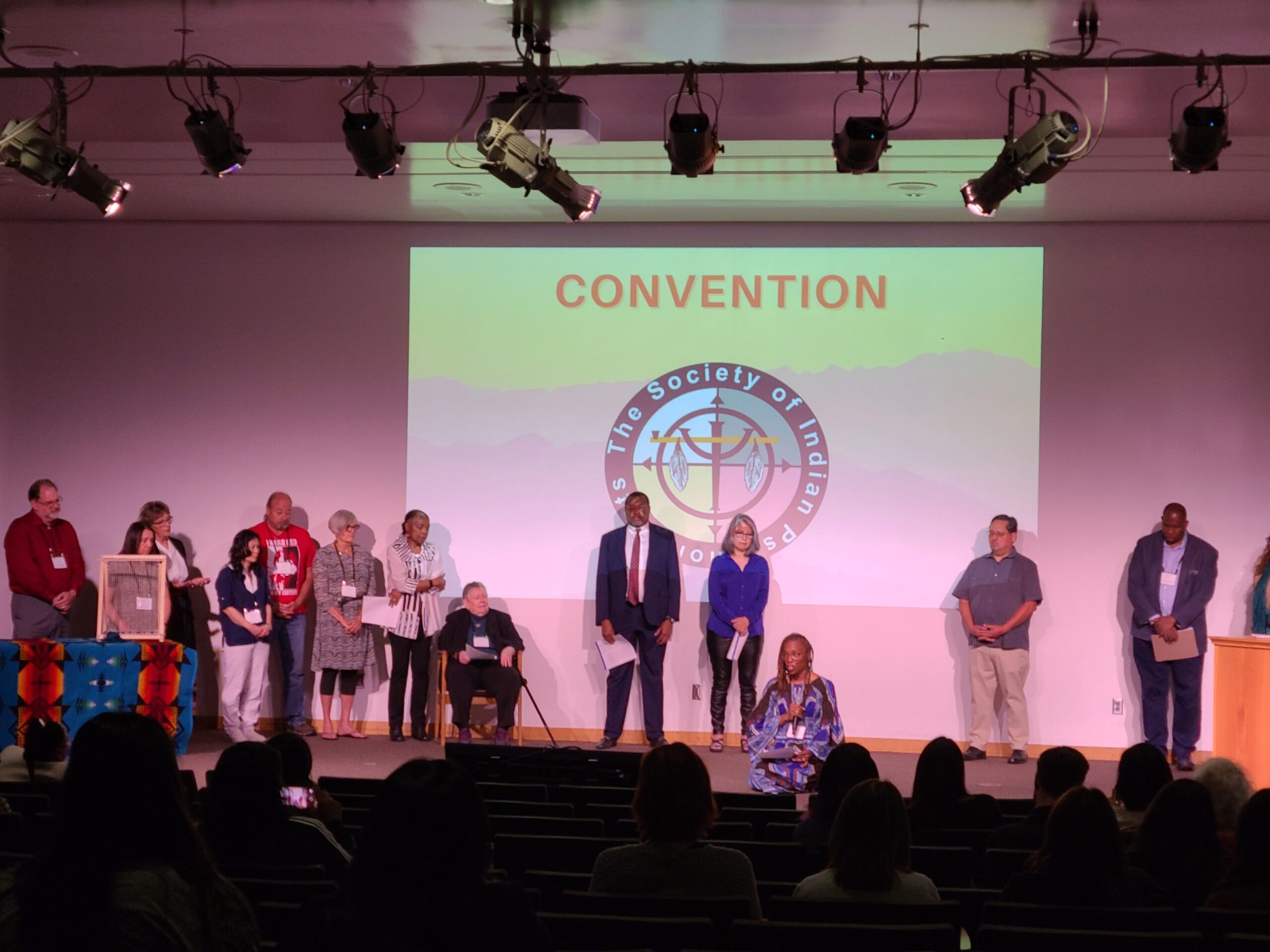At the Society of Indian Psychologists Annual Retreat and Convention last month, the American Psychological Association delivered a formal apology to First Peoples and Nations of the United States for actions and inactions that “allowed, facilitated, and perpetuated harm, intergenerational trauma, and cultural oppression.” The apology, more than two years in the making, was presented by APA leadership, including the APA President Thema Bryant; APA President Elect Cynthia de las Fuentes; APA Past President Frank Worrell; APA CEO & Executive VP Arthur Evans; APA Chief Diversity Officer Maysa Akbar; and the Indigenous Apology Work Group.
The APA Indigenous Apology Work Group was seated in 2020 by APA President Sandra L. Shullman. The Work Group includes Rosie Phillips Davis (Co-chair), Linda M. Woolf (Co-chair), Linda Forrest, Sandra L. Shullman, Janet T. Thomas, Debra M. Kawahara (APA Board of Directors Representative), along with consultants Justin Douglas McDonald, Oglala Lakota and Gayle Skawen:nio Morse, Kanien'kehá:ka (Mohawk) Nation. The formal apology was followed with a Wiping of Tears Ceremony (Navajo) facilitated by Bennie Begay & Lyle J. Harvey.
Among those in attendance for the apology at SIP were Jacqueline Gray, PhD, LPC, LMFT (Choctaw/Cherokee descent), interim co-director of the National American Indian and Alaska Native Prevention Technology Transfer Center (AI/AN PTTC), and C. Allison Baez, PhD (Tap Pilam Coahuiltecan Nation), program coordinator for the National AI/AN PTTC.
“I was moved by the thought and effort put into the APA apology,” Dr. Gray said after the conference. “Having worked and consulted with the majority of the APA delegation over the years, I know their beliefs, values, and heart in what they were doing and am willing to give time for their actions to take place.”
Dr. Baez also described the apology as meaningful, albeit a first step. “For me, it was an emotional time,” she said. “The truest way to know that APA will be held accountable to the apology will be to see their continued actions and support for years to come.”
Among other things, the APA apology commits the organization to:
Read the workgroup’s report and the text of the apology here: https://www.apa.org/pubs/reports/indigenous-apology.pdf
The formal apology was followed with a Wiping of Tears Ceremony (Navajo) facilitated by Bennie Begay & Lyle J. Harvey.
